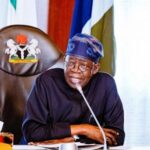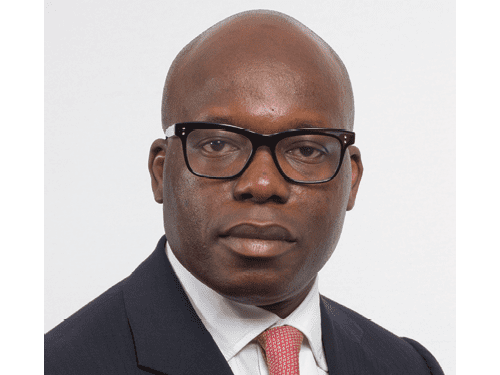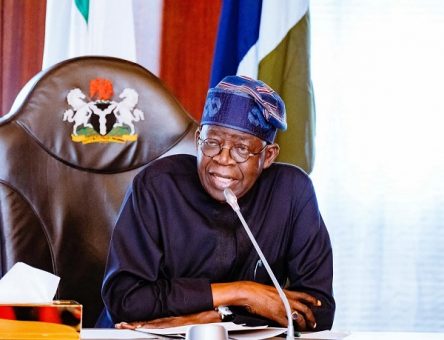K. BOLANLE ATI-JOHN argues for Nigeria’s engagement with the Shanghai Cooperation Organisation
In every age, the destiny of nations is shaped not only by their moral purpose but by their ability to understand and adapt to the structure of the world around them. The international system of the twenty-first century is no longer defined by opposing camps or permanent hierarchies. It has become an intricate network of shifting interests, intersecting technologies, and competing systems of influence. Power today is diffused, not concentrated. It flows through trade routes, algorithms, and digital corridors as much as through armies or alliances. The nations that will endure are those that master balance, the capacity to cooperate widely without surrendering autonomy and to build bridges without becoming bound by them.
For Nigeria, the challenge of balance is immediate and strategic. The global order that once seemed predictable has fractured into overlapping spheres of influence. Alongside the traditional institutions of the West have emerged new platforms of cooperation across the East and the Global South. Among these, the Shanghai Cooperation Organization, or SCO, has quietly evolved into one of the most consequential frameworks of the modern era. It brings together China, India, Russia, Iran, and the states of Central and South Asia, representing nearly half of the world’s population and a growing share of its production, energy, and technology. Whatever one’s view of its politics, the SCO has become a forum where the standards of tomorrow’s economy and the infrastructures of global connectivity are being forged. Nigeria cannot afford to remain an observer to this process.
To engage the SCO does not mean to replace one allegiance with another. It means recognizing that the world’s emerging architecture requires participation in multiple systems if national interests are to be advanced and protected. The organization’s priorities today align with many of Nigeria’s most pressing needs: infrastructure finance, digital transformation, renewable energy, and educational and cultural exchange. These are developmental rather than ideological domains. They offer opportunities for growth, innovation, and partnership that can reinforce, not undermine, Nigeria’s democratic trajectory.
The SCO’s Interbank Consortium and its proposed Development Bank are increasingly active in funding connectivity projects across Asia and the Middle East. Countries such as Kazakhstan and Uzbekistan have used these mechanisms to modernize their transport and energy systems. Nigeria faces an infrastructure deficit that the African Development Bank estimates at over one hundred billion dollars annually. Access to new sources of long-term finance, if managed prudently, could accelerate national renewal. Yet experience warns against uncritical optimism. Pakistan’s participation in China’s Belt and Road Initiative shows how concessional loans, without transparency or independent evaluation, can create fiscal strain. For Nigeria, every SCO linked project must therefore be governed by debt sustainability ceilings, open procurement, and parliamentary oversight. Diversification of finance must not become diversification of dependency.
Technology cooperation presents another frontier. The SCO’s Digital Economy Forum and BeiDou satellite navigation network have created partnerships in artificial intelligence, e-commerce, and geospatial data that could serve Nigeria’s agricultural, logistics, and maritime sectors. Access to these systems could enhance national capacity, but it also raises serious questions about data privacy and cyber sovereignty. Reports from the International Telecommunication Union and Freedom House have highlighted divergences in how SCO states regulate information. Nigeria’s 2023 Data Protection Act offers a domestic framework for addressing such risks. By adopting a dual system model, interoperable with both Western and Eastern standards while ensuring that all citizen data are stored within Nigeria, the country can reap the benefits of digital integration without sacrificing autonomy.
Equally promising is the SCO’s new emphasis on energy transition. The Tianjin Summit of 2025 launched three platforms focused on energy, green industry, and the digital economy. Nigeria, whose climate vulnerability is already costing an estimated six percent of GDP each year, has a strong incentive to participate in such initiatives. Partnerships in solar, wind, and low-carbon technologies can support Nigeria’s quest to balance industrialization with environmental responsibility. Here too, transparency and accountability will determine whether engagement produces sustainability or dependency.
Every opportunity carries a risk, and the SCO is no exception. Economic overexposure, technology asymmetry, and geopolitical misinterpretation are all real dangers. Between 2015 and 2022, 22 developing nations restructured loans associated with Belt and Road financing. Nigeria must learn from that experience. Co-financing SCO projects with African or Western institutions, and publishing their terms, can preserve confidence among creditors and citizens alike. Technology partnerships, according to UNCTAD, often fail to produce enduring value when recipient countries lack absorptive capacity. The National Office for Technology Acquisition and Promotion, working in concert with Nigerian universities and private innovation hubs, must be empowered to strengthen this absorptive capacity through research collaboration and professional training. Only by doing so can Nigeria transform access into assimilation and cooperation into competence.
In the realm of geopolitics, perception is reality. Western allies may interpret Nigerian participation in the SCO as a strategic drift. The appropriate response is clarity and communication. Engagement with the SCO should be publicly framed as complementary to Nigeria’s Atlantic and African commitments, not as a substitute for them. India provides a model of how this balance can be sustained. It remains an active member of the SCO while deepening its partnership with the United States through the Quadrilateral Security Dialogue. Strategic pluralism, not ideological purity, defines the diplomacy of mature nations.
Critics often point to the political character of several SCO members and argue that engagement with them contradicts democratic values. This concern deserves serious reflection. Nigeria must not dismiss it; it must transcend it. Engagement does not imply imitation. South Africa, within BRICS, and India, within the SCO, both demonstrate that democratic states can participate in mixed-value coalitions while projecting their own norms. For Nigeria, the challenge is to bring its democratic ethos to the table, to advocate transparency, accountability, and rule-based cooperation as part of its contribution to the global conversation. A confident democracy engages with every system without fear of contamination. The more Nigeria participates, the more it can humanize multilateralism with its own example.
Foreign policy, however, cannot rise above the institutions that conduct it. The strategy of balance presupposes a coherent state apparatus, yet Nigeria’s bureaucracy remains fragmented, under-resourced, and vulnerable to politicization. No grand diplomatic vision can succeed without administrative capacity and domestic stability. To operationalize a policy of selective alignment, Nigeria must first reform its internal machinery. A National Council on Foreign Policy Coordination could harmonize positions among key ministries. The Foreign Service must cultivate a new cadre of diplomats fluent not only in the language of geopolitics but in the vocabularies of artificial intelligence, digital regulation, and green economics. Transparency must be institutionalized so that all international agreements are subject to public scrutiny. Without such reforms, foreign policy sophistication risks becoming rhetorical theater.
There must also be a clear procedural path for selective engagement. The Ministry of Foreign Affairs can begin by initiating exploratory dialogue with the SCO Secretariat through Nigeria’s missions in Beijing and Moscow. This should be followed by an inter-ministerial white paper, tabled before the National Assembly for debate, outlining the terms, costs, and expected benefits of dialogue-partner status. Such a process would not only ensure national consensus but would also demonstrate to international partners that Nigeria’s engagement is deliberate, lawful, and accountable.
Security and economic stability at home are the foundation of credibility abroad. A state beset by internal crises will struggle to command respect in external negotiations. The first act of a balanced diplomacy is domestic coherence. Nigeria’s regional influence, its voice in Africa, and its potential leadership within the SCO will depend as much on the integrity of its governance as on the eloquence of its strategy.
If Nigeria proceeds with discipline, the rewards could be considerable. Diversified finance could accelerate infrastructure growth. Technology partnerships could expand the digital economy. Cultural exchange could project Nigerian creativity across Asia’s vast markets. By 2030, Nigeria could emerge as the principal African dialogue partner within the SCO, able to shape debates on development, climate, and digital governance. None of this requires military entanglement or ideological compromise. It requires only clarity, competence, and consistency.
In the end, the measure of statesmanship lies in the ability to seek equilibrium without losing direction. The world’s future will not be built by those who stand rigidly within inherited blocs, but by those who learn to move among them with purpose. To engage the SCO is not to take sides; it is to take part in shaping the future. Nigeria’s foreign policy must evolve from the caution of its past to the confidence of a nation that knows its place in the world. The geometry of multipolar diplomacy demands nothing less.
Rear Admiral Ati-John, a retired naval officer, writes from Lagos.


















Leave a comment